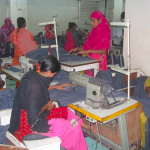Australians call for more sustainability initiatives at work

Sustainability is increasingly becoming more of a necessity for businesses due to a change of perspectives both nationally and internationally. It is becoming even more critical for companies to address the gap between knowing and implementing sustainable business practices. But are businesses really doing enough?
According to a new study of over 1,000 Australian office workers, commissioned by workplace supply solutions company COS, it seems not. The report found that 79% of Australians would like to see more sustainable initiatives at work. The most pressing initiatives workers are calling on their companies to implement are recycling programs (22%), transitioning to renewable energy (20%), reducing single-use plastics (16%), moving to paperless (15%) and reducing carbon emissions (10%).
Not only is sustainability a consideration for most Australians when choosing a company to work for (66%), it’s also a consideration when choosing a company to buy from (72%).
Belinda Lyone, Co-CEO of COS, an Australian owned private company offering product supply solutions for the workplace, says “Sustainability is becoming a necessity for Australian companies, with workers expecting more from their employers, and are very much considering their efforts when making buying decisions and choosing a company to work for.”
Lyone continued, “Sustainability is a strong focus for our company, with our organisation being named the ABA100 Winner for Sustainability in the Australian Business Awards in 2021. We are also very much on track to becoming Net Zero operationally and using 100% renewable energy by the end of 2023.”
Given this pressure from Australians, Belinda Lyone has offered insights on how to prioritise sustainability in your business and work towards becoming Net Zero operationally.
1. Understand your current emissions
The first step to becoming Net Zero operationally should be carrying out an audit of your business from this perspective. This should be carried out across your entire supply chain and operations. You may be able to see obvious quick wins. For example, in our warehouses, we replaced regular light bulbs to LEDs, or you could switch to a green energy supplier. We were the first in our industry, more than 10 years ago, to achieve ISO accreditation and invest in a solar farm with over 2900 panels in four branches in Australia.
2. Set realistic targets
Once you understand where your business is at you can set well-defined short and long-term goals. Short-term goals cover emissions reductions for the next 5-10 years and long-term goals include 10 years onwards. COS’ goal is to be Net Zero operationally in 2023. This won’t happen overnight, and we’ve been working on this goal for over 10 years.
3. Tackle one area at a time
It can be overwhelming when you consider all the areas within the business that need to change. Tackle one area of the business at a time, take action to reduce emissions and then move to the next area. Packaging was a big focus for us and our intention and commitments are to reduce packaging waste and phase out single-use plastics across our product range. We’ve made a lot of changes over a four year time period. This includes eliminating plastic bags in delivery boxes, trialling honeycomb paper wrap to replace plastic bubble wrap and our warehouses nationwide now use HeapsGood compostable eco-mailer bags for some customer packages.
4. Review and make adjustments
To meet targets you need to continually look at ways to improve current processes and future processes. Make sure reducing emissions is front of mind and this will help to inform decisions across the business. We are continually looking for ways to improve. COS’ third biggest emission is our delivery drivers. Recently, we’ve been trialling an electric van, Electra, in our Canberra warehouse, with a long-term goal to make our freight transport 100 percent electric.








